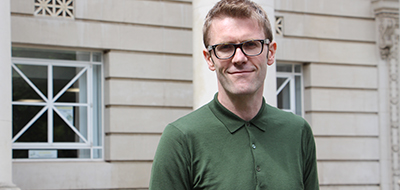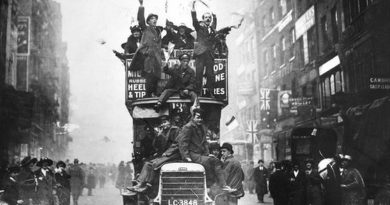News organisations want bucketloads of digital skills along with the ‘traditional’ journalistic ones too
Michael Hill is the course director of the School’s NCTJ-accredited MA News Journalism course. He took over from David English, who retired this year after 35 years of teaching.
——————————————————————————–

Starting this job has given me an idea of what being David Moyes is like. Specifically, I mean what being Moyes must have been like in the summer of 2013 when he’d accepted the job of following Fergie as Manchester United manager and continuing the history, reputation and success that his predecessor had spent years building.
While there’s no Fergie-style statue of David English outside the Bute Building at Cardiff University, nor even a lecture theatre that bears his name, the responsibility involved in following in his footsteps weighs heavy.
A mate of mine who’d read a news story detailing David’s achievement in training more journalists than anyone else during his 35-year career in the journalism school that had been ranked Number 1 in the country by the Guardian University Guide, offered me his sage advice: “Best not f*** it up then.”
It’s a line I often imagine is chiselled above my office door.
Operation ‘Don’t F’ It Up’ began on two fronts. On one, I began trying to learn as much as I could from the great man before he’d finished clearing out his office. While it’s not true that they were seeking to film an episode of Storage Wars in his office, it’s fair to say that David had not entirely embraced the Scandinavian minimalist style when it came to clutter, so I knew I had a couple of months to learn what I could.
The second part of my operation involved visiting as many news operations as I could to understand exactly how they were running their newsrooms and exactly what my first group of wannabe Woodwards and budding Bernsteins needed to know to fit in.
Editors and former colleagues from my 20-year journalistic career were incredibly generous with their time and the access they gave me to their staff as I set about getting to grips with the new newsroom models and the multi-platform journalism they were producing. This was also supplemented with help from other former journalists involved in training. Old friend and colleague Dave Welford at Nottingham Trent and new friend and colleague Martin Hamer at Salford deserve a mention.
The tour and the tutoring from David left me with a clear idea of exactly what I wanted to do in the role and what sort of journalists I wanted to come out of this course.
Journalism has changed in many ways, but in many ways it hasn’t. The core skills remain the same: you need to be able to find stories, to dig them out and then to tell them as accurately and engagingly as possible. Writing and interviewing skills remain key.
But my students are also learning about the other skills: how to market themselves and their stories, how to share and distribute news, how to use video and pictures to tell their stories more effectively and how to use different social media tools in different ways to achieve all the above.
As a result the course is no longer called Newspaper Journalism, but is now News Journalism. Our graduates get their industry relevant NCTJ qualification along with an MA. But what I’m determined they get most of all are the relevant skills required to get a job as a journalist next summer.
Visiting various news organisations left me feeling very optimistic about the opportunities for my class of 2015. I’ve told them that the jobs with regional and national news organisations still remain, albeit they want bucketloads of digital skills along with the ‘traditional’ journalistic ones too.
But there’s a wealth of new opportunities for those on my course too.
That’s why I’ve also spoken to small-scale local startups like The Lincolnite and The Bristol Cable who are thriving along with digital-only ‘big beasts’ like Buzzfeed in order to tell my students about the opportunities for them there and in lots of places like them. I’m also telling them that their storytelling skills are also prized by others who may want to offer them a job – sports organisations, charities and political parties.
I’m making sure my students are equipped with the relevant skills and have the opportunity to meet these employers and see for themselves how their learning can be applied to the variety of roles available.
My class of 2015 mean a great deal to me. They’re a great bunch of smart, curious, eager young journalists whom I’m determined will be at the front of any queue for jobs next summer.
I’ve just got to keep my mate’s advice in mind. And forget what happened to David Moyes.



